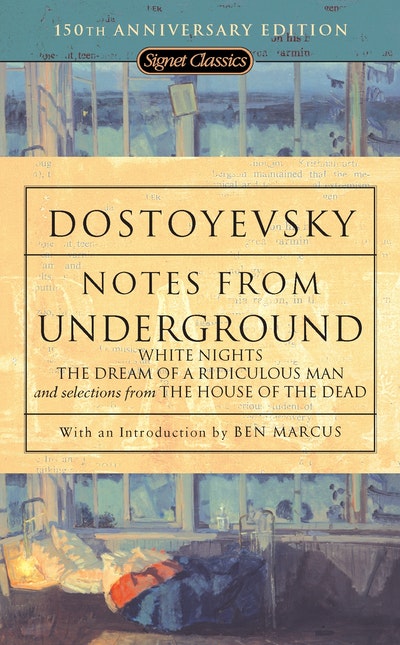A collection of powerful stories by one of the masters of Russian literature, illustrating Fyodor Dostoyevsky's thoughts on political philosophy, religion and above all, humanity.
From the primitive peasant who kills without understanding that he is destroying a human life, to the anxious antihero of Notes From Underground—a man who both craves and despises affection—this volume and its often-tormented characters showcase Dostoyevsky’s evolving outlook on man’s fate. The compelling works presented here were written at distinct periods in the author’s life, at decisive moments in his groping for a political philosophy and a religious answer. Thomas Mann described Dostoyevsky as “an author whose Christian sympathy is ordinarily devoted to human misery, sin, vice, the depths of lust and crime, rather than to nobility of body and soul”—and Notes From Underground as “an awe-and-terror-inspiring example of this sympathy.”
Translated and with an Afterword by Andrew R. MacAndrew
With an Introduction by Ben Marcus

